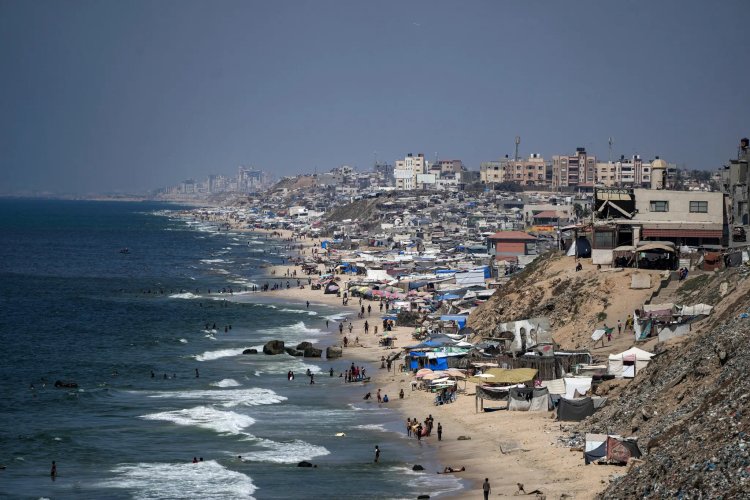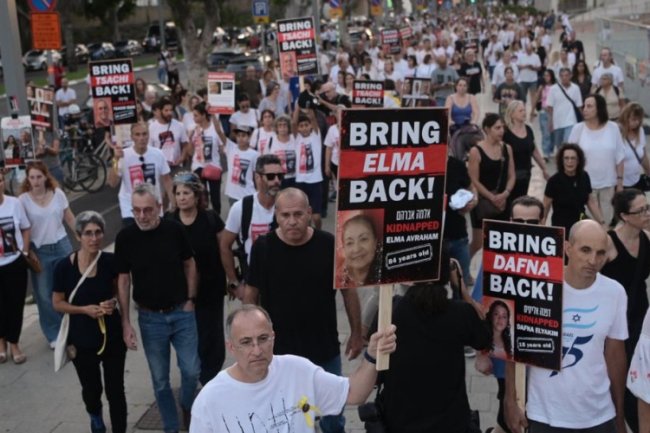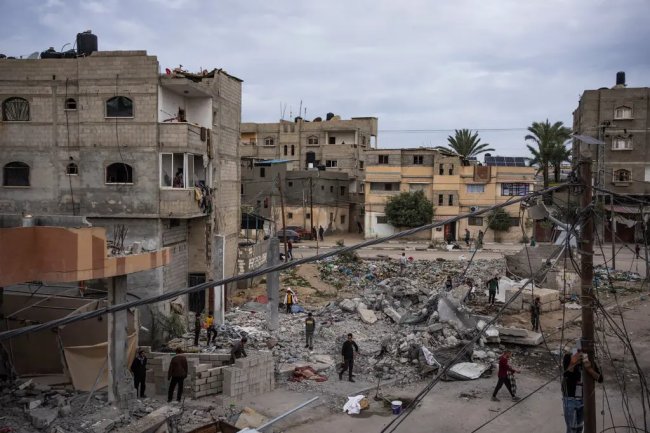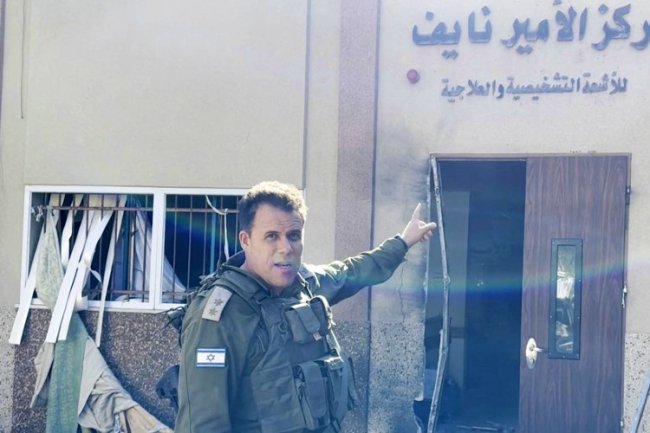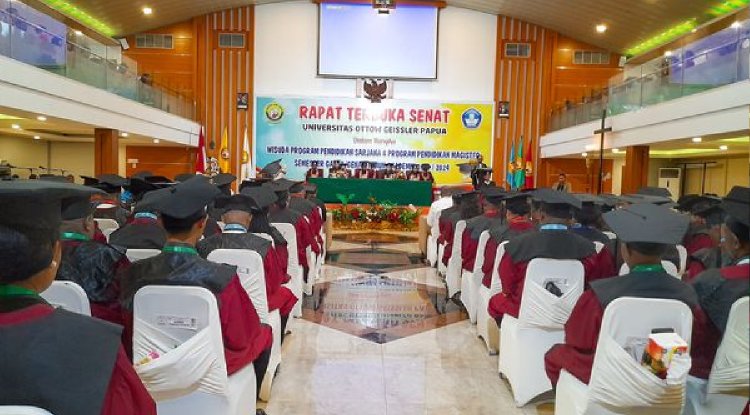On Thursday, the Israeli military issued new evacuation orders in the Gaza Strip, forcing thousands of Palestinians to leave their homes and shelters. The orders come amid international diplomatic efforts aimed at reducing regional tensions and ending a conflict that has dragged on for 10 months. However, despite these diplomatic maneuvers, the situation on the ground continues to worsen, creating a dire humanitarian crisis for Gazans.
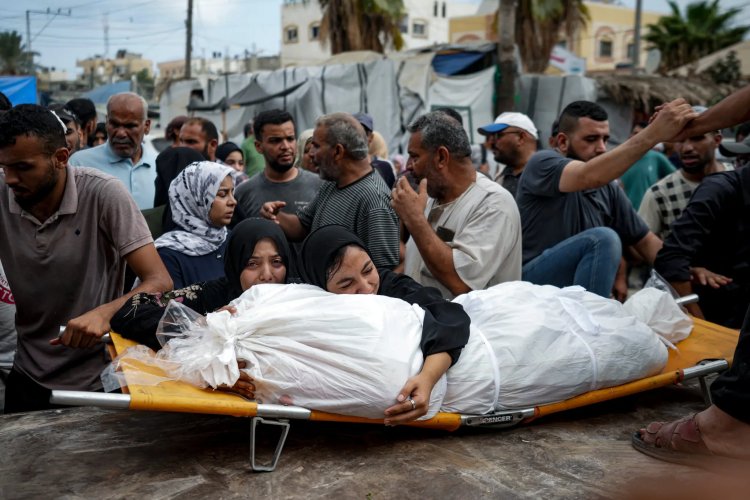
Since earlier this week, thousands of Gaza civilians have begun moving after receiving orders from the Israeli military to leave several areas in central Gaza. Most of them have already been displaced multiple times throughout the war, with many having to move from place to place with no assurance of safety.
Mohammed Aborjela, a 28-year-old resident of Deir al-Balah in central Gaza, was one of those forced to flee after receiving a message from the Israeli military. The message warned that there would be a “forceful” operation against Hamas militants in the area. With little time to prepare, Aborjela quickly packed a few belongings and headed to Al-Mawasi, a coastal area designated by Israel as a humanitarian zone. However, despite this area supposedly being safe, it has been repeatedly targeted by attacks.
“Just hours after we arrived there, Israeli tanks started shelling the tents where we were sheltering,” said Aborjela. “The tanks got closer and began firing at people, even though this is supposed to be a safe zone.”
The Israeli military, when asked about the incident, stated that they had taken precautions to minimize harm to civilians. They also confirmed that operations in the Deir al-Balah area had been expanded after intelligence indicated the presence of Hamas infrastructure and fighters in the area and in the southern city of Khan Younis.
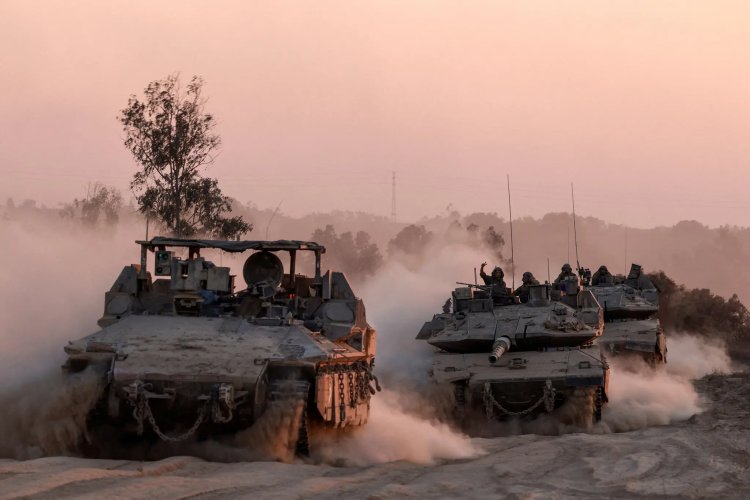
As Gazans continue to flee, Israeli and American officials have traveled to Cairo to resume talks aimed at securing a ceasefire agreement and freeing the remaining hostages held in Gaza. On Wednesday evening, U.S. President Joe Biden emphasized to Israeli Prime Minister Benjamin Netanyahu the importance of concluding the ceasefire deal and addressing any remaining obstacles in the negotiations.
An Israeli delegation led by Mossad intelligence chief David Barnea and Shin Bet security head Ronen Bar is scheduled to arrive in Cairo. Additionally, Brett McGurk, the White House coordinator for the Middle East and North Africa, and CIA Director William J. Burns are expected to join the talks.
The negotiations in Cairo are expected to focus on security arrangements along the Gaza-Egypt border and the potential reopening of the Rafah border crossing. These discussions aim to ease tensions in the region and improve access to humanitarian aid for Gazans trapped in the conflict. However, sources involved in the negotiations suggest that several key issues remain unresolved, particularly regarding Israel’s military presence along the Philadelphi Corridor.
Prime Minister Netanyahu insists on maintaining Israel’s military control over the area, arguing that it has served as a key route for weapons smuggling into Gaza. On the other hand, Egypt and Hamas strongly oppose continued Israeli control and demand a full withdrawal from Gaza. Israel has hinted at the possibility of alternative solutions, but no clear agreements have been reached yet.
In the midst of these uncertainties, pressure for a ceasefire is growing in Israel. This week, the Israeli military discovered the bodies of six hostages in a tunnel in Gaza. The families of the hostages reported that they were shown autopsy reports revealing bullet wounds, suggesting that the hostages were executed after being captured alive. Although these findings are still preliminary, the incident has intensified demands for the Israeli government to resolve the conflict and secure the release of remaining hostages.
Meanwhile, on the ground, Gazans continue to grapple with deteriorating humanitarian conditions. Hospitals in Gaza are overwhelmed by the influx of injured people. Dr. Iyad al-Jabri, a surgeon at Al-Aqsa Martyrs Hospital in Deir al-Balah, said his facility received seven people wounded in the shelling at Al-Mawasi. Hundreds of families have also flocked to the hospital, seeking shelter after the latest evacuation orders were issued.
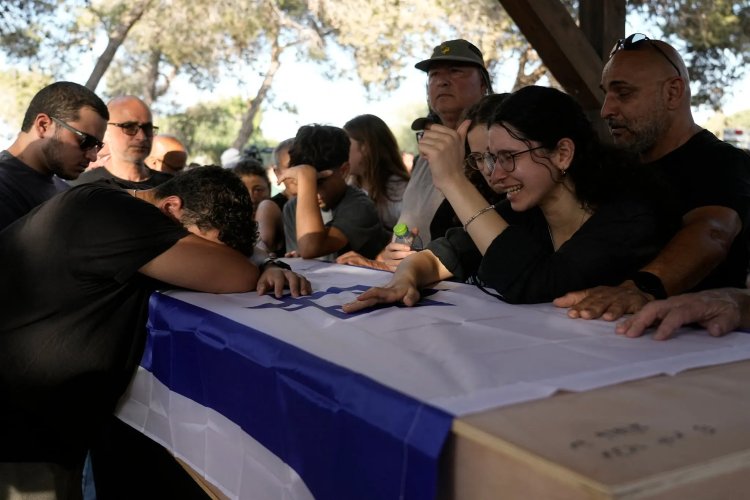
For Gazans, international diplomatic efforts like the Cairo talks offer little relief from the daily realities of displacement, danger, and scarcity. Majdi Nassar, a resident of northern Gaza who is now sheltering in Deir al-Balah, said he has been displaced eight times in the past 10 months, the most recent time being last week. “I’m fleeing only for the safety of the children with me. As for myself, I no longer care,” Nassar said with a tone of resignation. “Death is no longer the worst scenario. This life is much worse.”
The prolonged conflict has left deep scars on the people of Gaza. They continue to struggle to survive in a war that shows no signs of ending.
